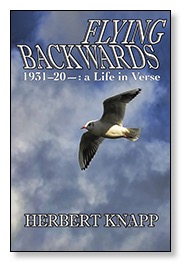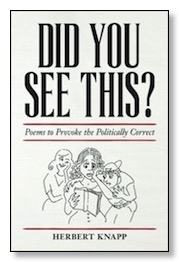Fourth State of the Art Post
There used to be a public for poetry. Today there isn’t. Why? There is one reason and one reason only. We have stamped out the minor leagues, and without the minor leagues (little leagues, and sandlot games), there are no major leagues. Yes, the academics keep giving prizes to poets they call major but it's all fake news. Nobody reads their poems .
Up until WW2 everybody agreed some poets and poems were better than others, but poetry was a game anyone could play. There were rhymes and metrical rules that were taught in school. Then the idea took hold that the rules were inhibiting free expression. So to free poets from the shackles of yesterday, we abandoned all rules. But the rules were not shackles; they were a baseline that gave significance to violations of the rules. No rules; no significance. Indeed, no rules; no readers.
The so-called Progressive educations consider themselves modern and up-to-date. No fad is too ephemeral for them to embrace. But they scorn history, and poetry is part of history. Instead of history (which significantly includes the word “story”), the Progressives teach Social Studies.(No stories, just facts).
The Progressive also scorn rules. They think of rules as fetters that prevent free expression. Have they never considered that without rules (grammar) intelligible speech is impossible? I guess not. If it occurs to them that rules are necessary, they assume the rules must come from an adult rule-giver. They have no faith in children’s ability to develop their own rules in order to play together. Rules, in their minds, come from a rule-book which is in the hands of a bureaucrat.
The Progressives also have an irrational antipathy to memorizing anything, especially “useless” poems. But since it is natural to memorize poems, Progressive cannot permit children to have any unsupervised playtime in which they might contaminate their minds with “useless” often politically incorrect traditional poems. Thus, they eliminated recess, replacing it with gym or exercise periods. But the informal learning that takes place on the playground is often of more lasting importance that the knowledge that sisal, flax, and hemp were exported by some country whose name you don’t remember.
A child may never learn the word “alliteration” but if he learns the playground rhyme that refers to the lunch provided by the school as consisting of “greasy, grimy gopher guts,” he understand and can recognize alliteration when he hears it. The child who recites one of the numerous variations of “I stand before you to stand behind you to tell you something I know nothing about” is well on his way to the mastery of rhetoric and to a joyful appreciation of the twists and turns of language. And the child who is taunted on the playground during recess doesn’t run to “a safe space.” He or she learns to respond with, “I’m rubber, you’re glue; what ever you say bounces off me and sticks to you!”
But progressive education isn’t the only thing responsible for the demise of poetry as a significant literary genre. There is also snobbishness. Before WW2 it was OK to like the poems of R.W. Service (“The Shooting of Dan McGrew”), Kipling, Millay, or Lizette Woodward Reese. But after the war, everybody went to college and learned that there were “good” poets and “bad” poets, and only stupid people like bad poets. But since the difference wasn’t clear to anyone but “literary experts” and nobody wanted to sound stupid, people simply stopped stopped reading poems. That way, they were never wrong.
I conclude this post with the last few lines of a poem written in 1945 and published in a small town newspaper in West Virginia. The author is a “sand lot” poet with no pretensions to literary excellence. But for him and for his audience, it was the content, the meaning of the poem that mattered, not the “elegant distribution of vowel sounds.” The poem is about the return of a home town boy who evaded the Japanese round up of American troops in the Philippines and spent the war leading a band of guerrillas in the jungle. I read about him in a book called Resolve“ by Bob Welch.The poem ends:
The folks are at the depot now
with gifts and things, no end.
I lift my face and give glad thanks
Above that I can say—
Because He’s made it possible—
FRANK’S COMIN’ HOME TODAY!
When amateur poets could write and publish poems like that to the general appreciation, there was a context—an atmosphere— in which literary poems could flourish. When that kind of `poetry became too uncool (too innocent, too “deplorable”) to write or to publish, Literary poetry withered and died.
Comment on 9/ll
I have an itch to scratch about the response to 9/11.
In the days after the buildings went down, several pundits quoted a line from W.H. Auden’s poem “September 1, 1939”(The date Hitler invaded Poland and started WW2.). The line they quoted was, “We must love one another or die,” chosen I’m sure to warn us deplorables against Islamophobia. (Not even they could not have supposed it would have any affect on our enemies.) It is a line that sums up the secular Liberal belief that survival is more important than sacrifice, that there are no disagreements that can’t be cured by therapeutic love, and that everything bad that happens is America’s fault.
Auden came to feel strongly that that particular line was “a damned lie.” He tried to revise it. He tried leaving out the whole stanza. Nothing worked. He decided the whole poem was “infected with incurable dishonesty and must be scrapped.” He was right. The poem includes wonderful lines and stanzas. But it is an argumentative poem that tries to do too much in too little space.
I read posts by one or two bloggers who quoted Kipling after 9/11, but the lines they quoted didn’t get wide circulation. Our political betters have decided Kipling (the author of Kim!) is a deplorable and no amount of quoting from his poems is ever going to change their minds. Our literary betters also tell us his poems are not really poems (except for a half dozen or so) but merely verse, i.e. minor league stuff.
But two of Kipling’s poems are far more relevant to 9/11 than Auden’s mawkish admonition that we really must love one another. One is “The Gods of the Copybook Headings” that judges us to heed the trite but true old sayings that students were once required to write at the top of each page of their copybooks. If we did, we would learn: “That Water would certainly wet us, as Fire would certainly burn.” But we didn’t learn those things. We found the Gods of the Copybook headings “lacking in Uplift, Vision and Breadth of Mind,” so we deserted them for the Gods of the Market place who promised us a “Fuller Life,”
(Which started by loving our neighbor and ended by loving his wife)
Till our women had no more children and the men lost reason and faith.”
David Goldman, Mark Steyn, and others have pointed out that this is what is happening. People in Europe and America have stopped having babies. We are headed for a time when there will be four retirees and eight caregivers for every worker. Of course, the country will collapse long before that, but that’s where we are heading, And Kipling, that bigoted mere versifier, saw it all a hundred years ago,
The Gods of the Market Place promised “abundance for all, / By robbing selected Peter to pay for collective Paul.”
"And that after this is accomplished, and the brave new world begins
When all men are paid for existing and no man must pay for his sins,
As surely as Water will wet us, as surely as Fire will bum,
The Gods of the Copybook Headings with terror and slaughter return."
The other Kipling poem that bears on 9/11 is “Tommy,” a generic name for the British soldier.
"Then it's Tommy this, an' Tommy that, an' 'Tommy, 'ow's yer soul?'
But it's 'Thin red line of 'eroes' when the drums begin to roll . . ."
That poem is too critical of the better sort who look down on men in uniform to ever be widely quoted today, but as I watched Manhattan eulogize the policemen and firemen who died in the twin towers—men whom the better sort had regarded just the day before as sexist louts and racist bigots in need of “sensitivity training”—I remembered “Tommy,”
"For it's Tommy this, an' Tommy that, an' "Chuck him out, the brute!”
But it's "Saviour of 'is country" when the guns begin to shoot;
An' it's Tommy this, an' Tommy that, an' anything you please;
An' Tommy ain't a bloomin' fool -- you bet that Tommy sees!"
Here’s my poem about 9/!!
NOTHING WORKS
I’ve tried and tried
to write about the towers burning
and the leapers dropping, dropping,
dropping through the morning light.
But nothing works. The job’s too much for me.
And maybe it’s too much for poetry
the way it’s done today. The subject’s like
a sturdy country girl among the sleek
glamazons of Fashion Week.
Oh, she would be a wow
wearing a Kipling or a Julia Howe.
But those styles aren’t just dated. They’re obscene.
Imagine it. The arts community
would have a cow.


